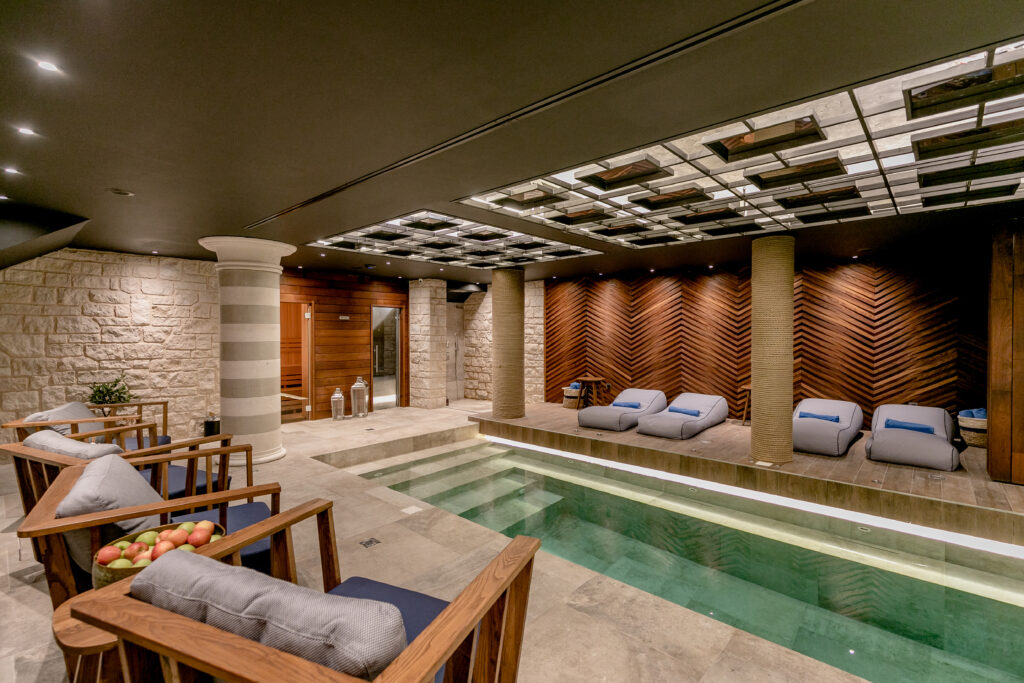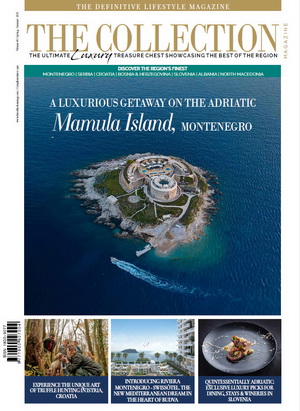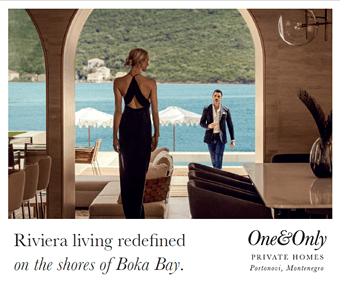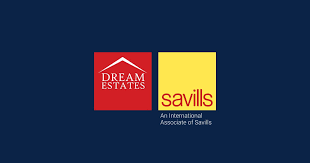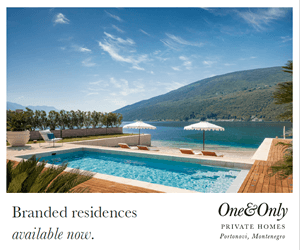An Interview with Nikola Milić – CEO & founder of Casa Del Mare Boutique Hotel Collection
Q. Dear Mr. Milić, Casa del Mare hotel group is one of the best examples of successful and modern business in Montenegrin tourism. You have passed a very demanding and challenging road to achieve these results, but at the beginning I would like to ask you to tell us how it all started?
A. Fourteen years ago, our story began as a family endeavor deeply entrenched in our collective passion to capture and showcase the natural allure of Boka Bay. As hospitality enthusiasts, my wife Milena and I set out to create something special – a place that transcends conventional hotel concepts and resonates effortlessly with the unique charm of our surroundings. That is how, in 2009, our first hotel, Casa del Mare Mediterraneo was born – out of a profound desire to blend the beauty of Montenegro’s coastline with the intimacy and exclusivity of small boutique hotels.
At the onset, we encountered numerous challenges – from daily ones related to the state of hospitality to establishing new value in a place where no tourism took place. As we navigated them, we discovered that our strength lay not only in our business strategies but in the bond that unified us. We used the period from 2009 to 2014 to work hard and achieve financial results that allowed us to turn our intentions into reality. We dedicated significant efforts to enriching our own knowledge and experience, considering that neither Milena nor I had formal education in tourism and hospitality. Looking back, it is particularly satisfying that we managed to elevate Kamenari, a place that was not considered touristy and granting it the significance it deserved. This accomplishment represents not only added value for us personally but also for the entire community. In addition to the clear vision we had from day one, we dedicated considerable effort towards cultivating authentic connections with ourselves, guests, collaborators, and partners — ensuring both ongoing development and market sustainability.
Today, we take pride in the path we have walked, in every guest to whom we have delivered a memorable experience, and in the team that has and continues to journey with us at Casa del Mare.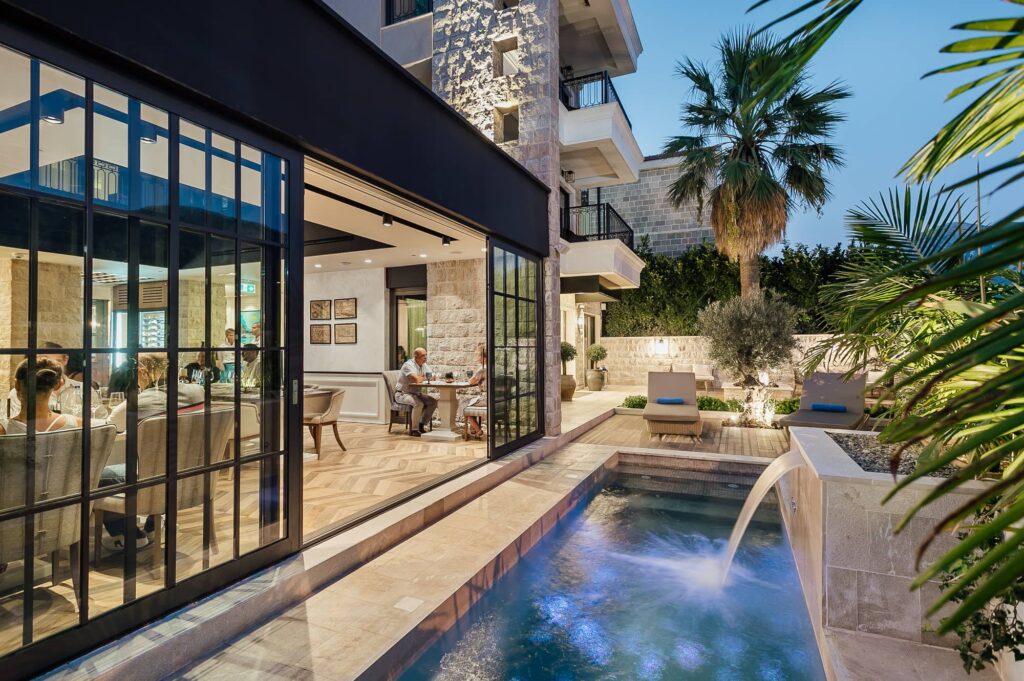 Q. What the development strategy and general style of the Casa del Mare hotel group that you have been building all these years look like? New hotels in Budva and Kolašin are also announced.
Q. What the development strategy and general style of the Casa del Mare hotel group that you have been building all these years look like? New hotels in Budva and Kolašin are also announced.
A. Our development path has always revolved around providing authentic and personalized experiences for our guests with a local touch in every aspect of our work. We aim to preserve what makes us unique – our commitment to high service standards, intimate atmospheres and generating a Casa feeling – a sense of warmth that is felt at every corner of our hotel. In line with this, our strategy and all its elements, including technical standards, interior, concept, narrative, employee relations, communications, etc, have always been clearly defined. This was particularly relevant in the last couple of years and the development phases we went through with the support of the European Bank for Reconstruction and Development (EBRD).
The upcoming hotels in Budva and Kolašin reflect our ambition to extend our values and unique offerings to new destinations. With the Casa del Mare Magata hotel we will be expanding our business to the Budva Riviera, at an ideal location along the city’s promenade. Similarly, the condo hotel Wulfenia Hotel will be our very first establishment in the northern part of Montenegro, which is indeed a source of great satisfaction for us. With 60 hotel units, it will house a spa, wellness center, and an exclusive dining concept combining the finest of Montenegro’s north with our chefs’ extensive culinary experience. Wulfenia is expected to greet its first guests during 2024.
Our development story is multifaceted and ambitious, but we try to never lose sight of reality. Regardless of where and how we expand, our goal remains consistent – to provide guests with an experience that leaves them feeling welcome as part of our Casa del Mare family.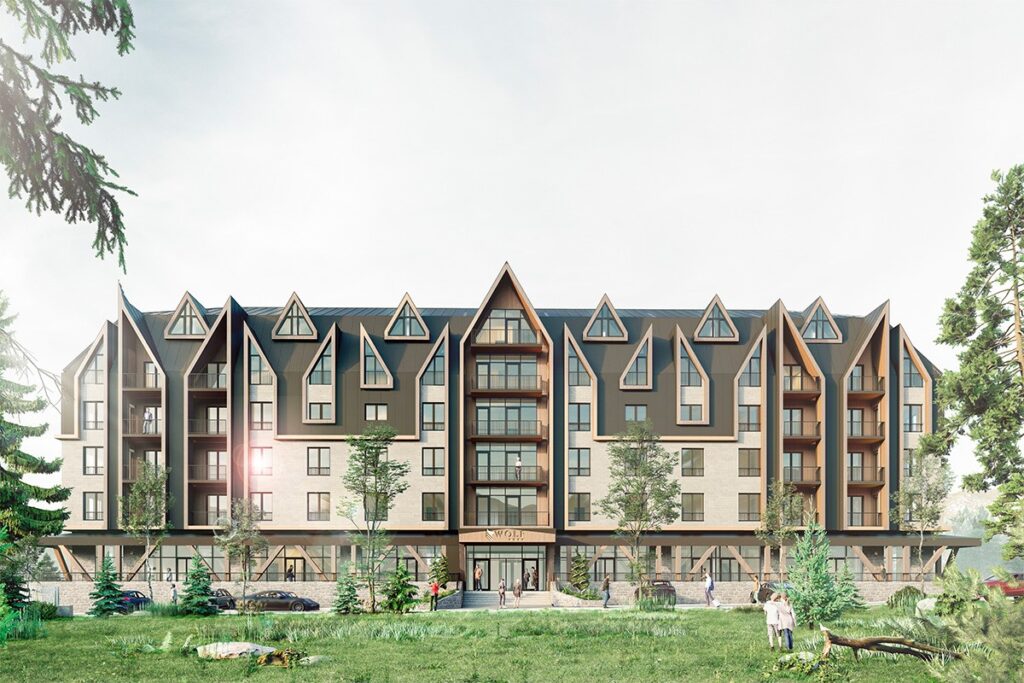 Q. The Bay of Kotor is very often referred to as “The five stars fjord” due to the great attention of the world media in recent years, as well as significant investments and projects that have been implemented and planned for the Bay. Do you think the future of tourism development in the Bay will be based on unique hotels and offers, such as yours, or something else?
Q. The Bay of Kotor is very often referred to as “The five stars fjord” due to the great attention of the world media in recent years, as well as significant investments and projects that have been implemented and planned for the Bay. Do you think the future of tourism development in the Bay will be based on unique hotels and offers, such as yours, or something else?
A. The increasing attention that Boka Bay has gained worldwide is certainly an encouraging circumstance for all of us in the hospitality industry and that title is, from my standpoint, rightfully deserved. As such, it needs to be reflected in the country’s national strategic documents, creating the basis for an even better positioning of our Montenegro on the global tourist map. Regarding the future of tourism development in Boka Bay, I believe that it will not solely rely on unique hotels and offerings, although they will undoubtedly play an important role. While exceptional accommodations like ours contribute significantly to the appeal of the region, I am confident that the future also holds promise in sustainable and diverse tourism experiences inspired by the essence of Boka.
Beyond luxurious accommodations, there is potential for growth in ecotourism initiatives, authentic cultural experiences, adventure tourism, and a sustainable approach that respects and preserves the natural and cultural heritage of this exceptional region. We envision a future where sustainable tourism practices, cultural immersion and preserving the Bay’s natural beauty will be fundamental. At Casa del Mare, we are committed to being a part of this sustainable tourism narrative and we make sure to leave a mark in this sense in a tangible way.
What I see as a differentiating element of Boka Bay spatial development is the opportunity to further support and encourage a boutique hotel concept, which would be particularly appealing to domestic investors, while at the same time spurring the local economy. This model would also ensure that Boka Bay’s urban landscape is in line with its traditional layout, providing multiple opportunities for hiring local workforce.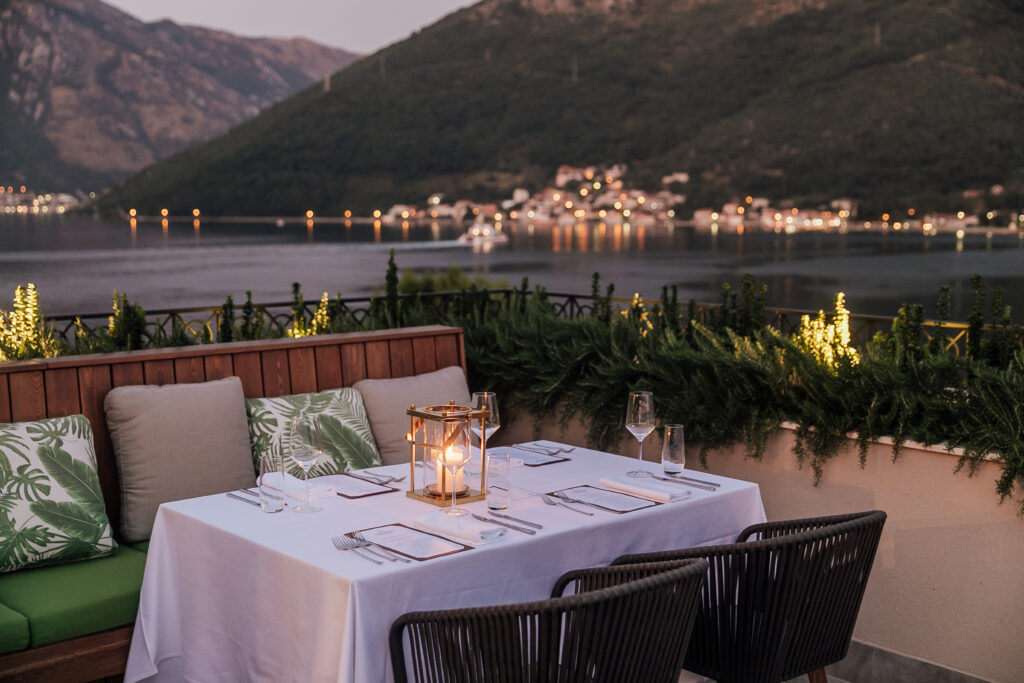 Q. If you were in the position to propose an initiative aimed at the long-term solution to the problem of adequate domestic staff in tourism, what would it be?
Q. If you were in the position to propose an initiative aimed at the long-term solution to the problem of adequate domestic staff in tourism, what would it be?
A. There has been a lack of clearly defined strategic direction and the plan in the past when it comes to tourism, the most important branch of Montenegrin economy. This is equally the case with insufficiently qualified and skilled workforce in our industry. Unfortunately, we are feeling the effects of this shortcoming every day. Even though I consider myself as an optimist, this is not an issue that we will easily resolve.
Certainly, there are concrete steps that we can take to gradually improve the situation. Since I am a member of the Association Board for Tourism and Hospitality at the Chamber of Economy of Montenegro, we try to use this platform as a way to provide ideas, one of them being legally defining and regulating permanent seasonal workers and service charge. I believe it is also of great importance to innovate and adjust the education system in a way that it follows contemporary trends and global industry standards that are changing rapidly. More importantly, the vocational education in tourism and hospitality should be highly promoted and incentivized by our decision makers, primarily through schooling but also potentially through bringing successful world-known professionals from this field to transfer their knowledge to aspiring young professionals from Montenegro.
On a micro level, we are glad that, so far, we at Casa del Mare have not had to resort to employing foreign workforce outside our region. We have been dedicated to investing in people and staff training, and we saw this as one of the ways we can try to mitigate the consequences of this issue.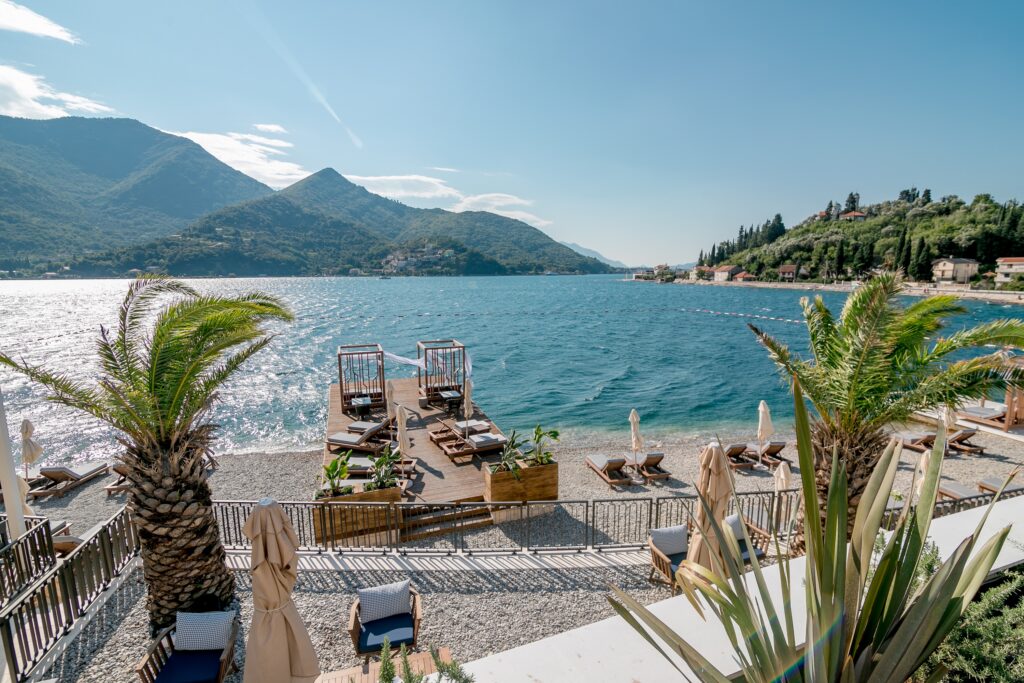 Q. What do you currently see as the biggest problem in the hotel industry in Montenegro and the region?
Q. What do you currently see as the biggest problem in the hotel industry in Montenegro and the region?
A. As previously stated, the most significant challenge we face is the shortage of qualified and trained labor that would help us provide a service to meet the criteria of our hotels and restaurants, along with the absence of a clear strategy for educating individuals for roles in the tourism sector. This is a case for all of us in the region, not only in Montenegro, and it is especially evident during the season. Every year, we face this challenge in our business and I cannot say that the situation is visibly improving. We constantly struggle in designing education programs and raising awareness within our team, to the best of our abilities, but there is only so much that we can do. The issue needs to be brought to the national attention and set as a priority.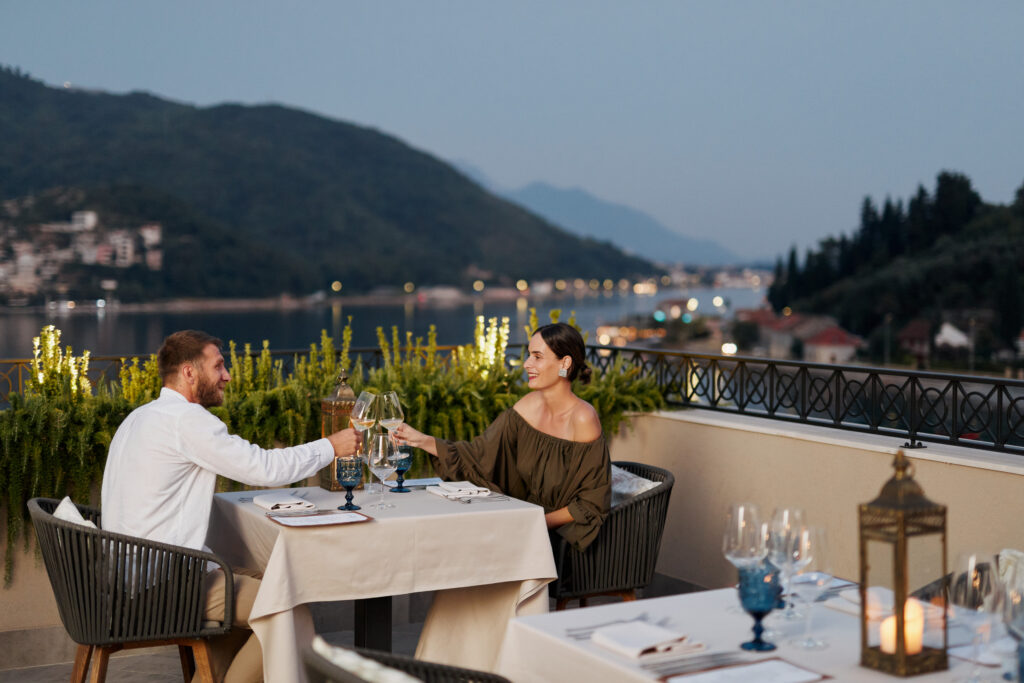 Q. What are your expectations and do you already have any indications of what kind of season awaits us next year, given that we do not yet know what the air connection between Montenegro and Europe and the Middle East will be like?
Q. What are your expectations and do you already have any indications of what kind of season awaits us next year, given that we do not yet know what the air connection between Montenegro and Europe and the Middle East will be like?
A. In these changing global circumstances, it is very hard to predict the season and its outcome. The reason why that is the case is that in the past we have had heavy seasonal influx of tourists coming from the countries that are currently war zones, such as Ukraine, Russia and Israel. We hope that the situation will be better next year in every way, but there is no way of knowing at this point.
Due to our geographical location and transport infrastructure, we are heavily reliant on air transportation. In order for all of us within the tourism industry to have a successful season, decision makers must find ways of ensuring that the flight connections to international markets remain open and diverse, constantly seeking ways to secure new connections and destinations.
Q. You have achieved a lot since 2009, but it seems that the situation in the hotel industry has changed significantly since then. How difficult or easier is it today to start and run a successful boutique hotel in Montenegro compared to when you started?
A. It has been almost 15 years that we have embarked on this journey with Casa del Mare and it is nearly impossible to draw a comparison between today’s tourism landscape and that of the past. From this perspective, I would say that back in the day, we could get away with a lack of skill and knowledge, simply be part of the industry and the movement in order to succeed. Today, this is more complex, especially bearing in mind that there are numerous segments and sectors within the hospitality industry which all need to be led by skilled professionals which are not always easy to come by.
Here is where we found an opportunity to use our know-how and very diverse experiences we have accumulated so far to help investors in the tourism and hospitality industry in tackling the most important element – hotel management.
Over the years, we have assembled a team comprising 60 permanent staff members along with numerous seasonal workers integrated into our workforce registry. We have established well-defined procedures, emphasized quality assurance, and implemented various strategies. These elements have been fundamental in our journey to oversee thriving boutique hotels in Montenegro. This is precisely what we can present to any prospective investor interested in collaborating with us.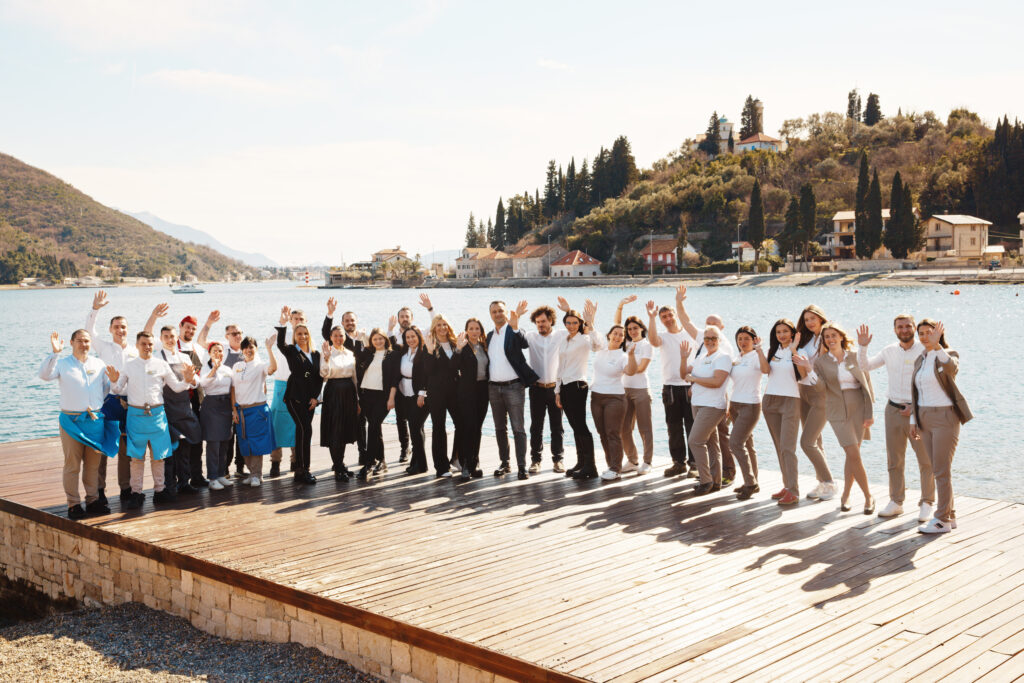 Q. In addition to the group within which you have five hotels, you have also founded a hotel management company. What services do you provide to your clients in this segment?
Q. In addition to the group within which you have five hotels, you have also founded a hotel management company. What services do you provide to your clients in this segment?
A. Last year marked the realization of our long-held ambition: the inception of Casa Hospitality Management, a white-label enterprise dedicated to overseeing all phases of hotel projects and their management. Through this innovative business model, our aim is to respond to the needs in the market and leverage the connections and the knowledge and experience of our team in the field of tourism and hospitality, offering it to investors seeking to create new value in our country.
Casa Hospitality Management is dedicated to ensuring that each property under our management thrives in the competitive hospitality landscape. In addition to Casa del Mare, under the Casa Hospitality Management, we are currently engaged in a project in Kolašin and in the process of signing a contract for a hotel in Sveti Stefan, and we are always looking to additionally expand our portfolio.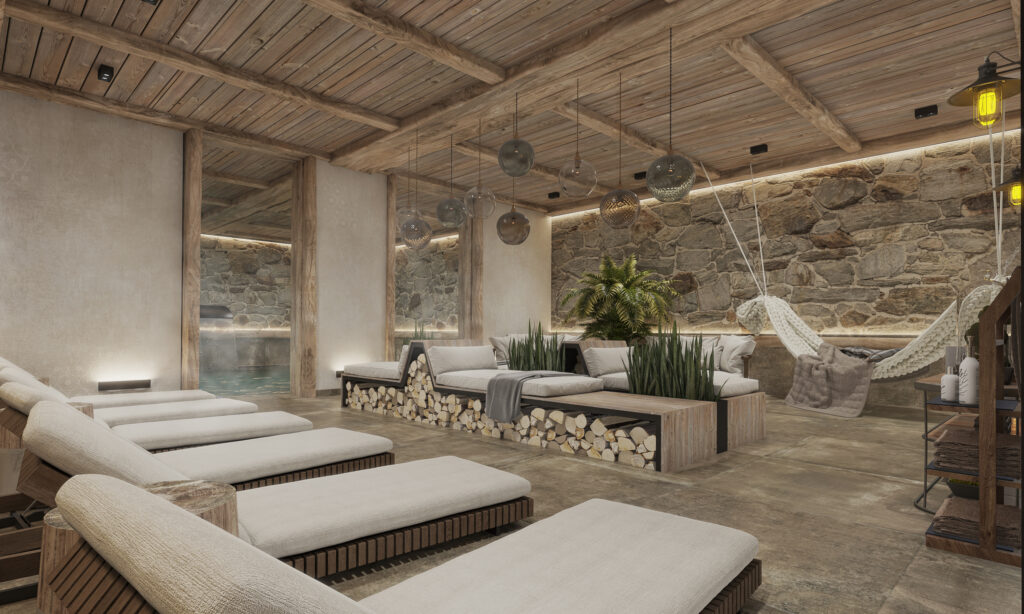 In addition to operational hotel management, Casa Hospitality Management also offers services encompassing all stages of hotel openings, as well as consulting services, conducting feasibility studies, determining economic and financial viability of investments in specific locations, hotel concept development, market research and analysis, hotel project development, future hotel development, staff training, etc..
In addition to operational hotel management, Casa Hospitality Management also offers services encompassing all stages of hotel openings, as well as consulting services, conducting feasibility studies, determining economic and financial viability of investments in specific locations, hotel concept development, market research and analysis, hotel project development, future hotel development, staff training, etc..
The potential that this model offers has also been recognized by the EBRD and its Blue Ribbon program, which ensures we have access to a network of world-renowned experts in the tourism industry to improve our business operations. In line with that, we are looking forward to the next phase of our growth and are committed to exceeding expectations through our specialized hotel management services.
Q. You have already done business in the region and you have announced projects in Croatia and Albania, so we are interested in whether there are any cooperation plans with hotel groups in other countries of the region?
A. We are the first Montenegrin management company that has been able to export its know-how outside our borders, more specifically through providing our support to projects in Serbia and Republika Srpska. Our five-year plan includes expansion to the region, namely Croatia, where we have already signed two contracts for projects that will materialize in the coming period. We are actively scouting for opportunities that will allow us to take part as a brand in investment projects in Albania, as it is a highly progressive market and still under development. While I can not share any specifics yet, these projects will soon be revealed, and we will make sure to keep the public informed in a timely manner.
